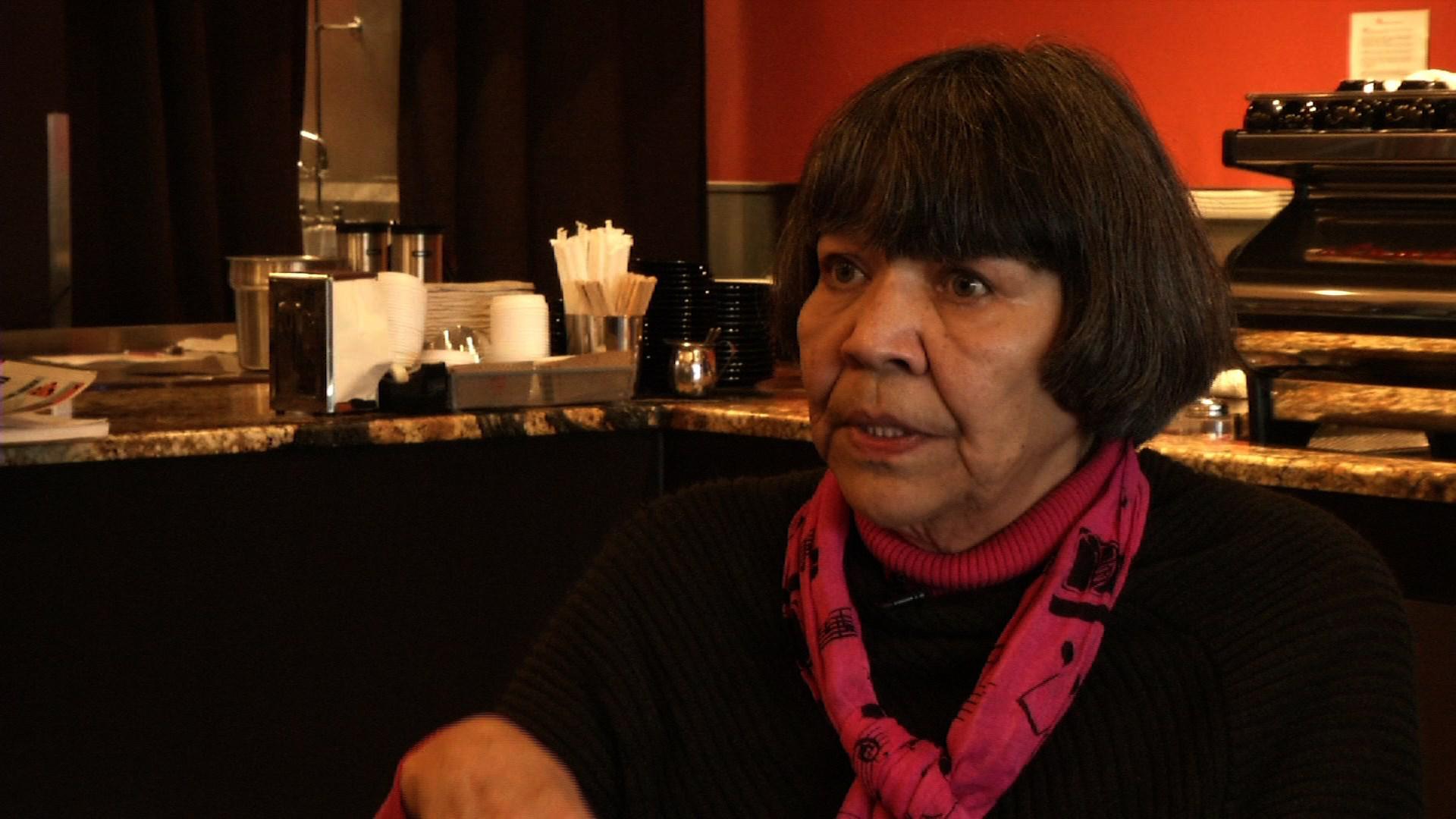
Desa Jacobsson is remembered for her weeks long fasts and multiple arrests to call attention to violence against Alaska Native women, Native rights, subsistence and environmental issues.
Jacobsson was born in Hooper Bay and died in Anchorage on Thursday.
Her family is holding a visitation for her today in Anchorage. Burial will be in Anchorage Memorial Park Cemetery.
Today her work is remembered as family, friends, and supporters gather in Anchorage for her funeral.
Desa Jacobsson titled her final political campaign: B.O.O.B.S., or Bothered Over Outrageous Budget Shortfalls.
She started the campaign in January to protest the Alaska Legislature’s budget cuts to law enforcement.
She didn’t want sexual assault victims left vulnerable in a state where many villages already don’t have officers. The title, B.O.O.B.S, was provocative, unapologetic, and female, just like most of Jacobsson’s work.
But a cancer diagnosis in February cut her campaign short.
“There’s always a sense of pride in what she stood up for,” said her daughter Teresa Jacobsson, who grew up attending protests with her mother. “It was difficult sometimes, because not everybody agrees with the way that she went about it, or was uncomfortable with what she was bringing up.”
Teresa called her mother’s parenting “non-traditional.”
More than once, Teresa found out about her mother’s latest activism the same way everyone else did.
“I remember one time I was ironing my clothes, and I could hear my mother’s voice and I thought, ‘What the heck?'” Teresa Jacobsson said. “I looked up, and I looked at the news, and there she was.”
Jacobsson was protesting the Anchorage Police Department in the early 2000s after it became known that a number of Alaska Native women had been found dead and that the crimes remained unsolved.
University of Alaska Fairbanks faculty member Diane Benson protested beside her.
“She was a ball of fire,” said Benson. “She never wanted the violence against Native women to be ignored.”
Both Jacobsson and Benson were survivors of sexual violence and wanted a different future for Native women.
In 2002, they ran for governor and lieutenant governor as Green Party candidates.
They were the first Native women to run for these seats and won about 3 percent of the votes.
“One of my favorite memories is watching her with the press, and she would engage so easily,” Benson recalled. “She would have this glint in her eye, and big smile, and say exactly what she needed to say.”
The duo served on panels addressing sexual violence against Native women and worked to disrupt Gov. Sean Parnell’s “Choose Respect” rallies.
The women said that the message oversimplified and diminished the problem, while obscuring the core issue: power.
Police led Jacobsson away in handcuffs at one rally when she attempted to approach U.S. Sen. Lisa Murkowski who was speaking at a podium.
Her more famous acts of protest involved going up to three weeks without eating to raise attention for sexual violence.
She called them fasts, not hunger strikes. A strike can imply violence; her campaign sought the opposite.
Despite the lack of calories and the increased bodily stress, she never stopped working.
Lisa Hoggblom at Bristol Bay’s domestic violence shelter remembers Jacobsson flying to Dillingham to help them during one fast.
“That’s a really hard thing to do, to put yourself under that strain to make a point, and she believed in it enough to keep on doing it while she was here,” Hoggblom said.
Jacobsson helped the shelter produce multiple videos. In one, 2005’s “Heart of the Grizzly,” Jacobsson looks at the camera and says: “If we look into ourselves for a solution, that requires action and that action is what quells silence and apathy. Every day and in each village we hear more and more Native women standing up.”
Teresa Jacobsson said that in the days following her mother’s death she’s received a cascade of thank you’s for her mother’s actions, and the affirmation that these actions are what allowed so many others to stand.
